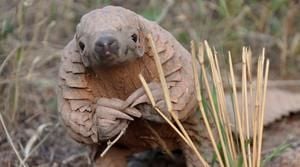Click to tell Facebook to shut down its disturbing pangolin trade
Posted on
|
Pangolins need all our help. I’ve had an email from SumOfUs.org about a petition for pangolin lovers. They have some really good campaigns on SumOfUs and are achieving some great results Pangolins they need our voice, and our signature to tell Facebook "to increase the enforcement of wildlife trafficking policy and make sure that no threatened or endangered species’ parts are sold on your platform."
A new report says that Facebook it worse, because they are letting traffickers sell pangolin parts on their platform! Report investigators searched translations of pangolin in different languages, and there was listing after listing, even though Facebook has already signed an international coalition to stop this sort of thing! They just need to enforce their own rules. Click to tell Facebook to shut down its disturbing pangolin trade |
